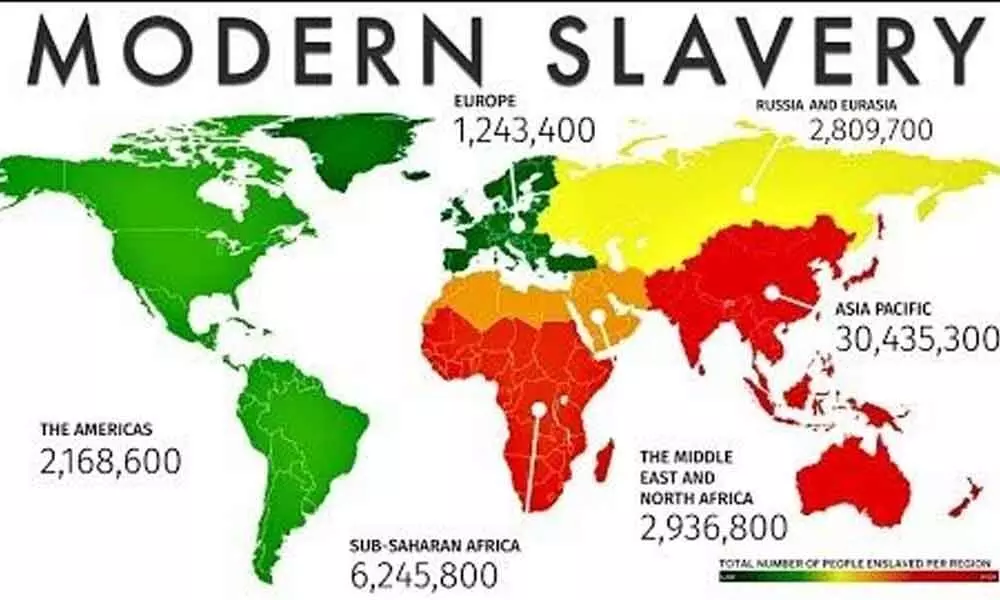Slavery has been an all-pervasive malaise

It has taken decades for Commonwealth Hunan Rights Initiatives to recognise the existence of slavery in some form or the other. The members of Commonwealth were once colonies under the Crown of United Kingdom subsequently liberated with the moral support of the U.S.S.R.
It has taken decades for Commonwealth Hunan Rights Initiatives to recognise the existence of slavery in some form or the other. The members of Commonwealth were once colonies under the Crown of United Kingdom subsequently liberated with the moral support of the U.S.S.R.
India, claimed to be the largest democracy in the world lived with the labour Acts framed by the colonial master for its subjugated subjects to carry on its exploitation without any sort of hindrances. It is known to one and all that the work force of this country played a pivotal role in liberating this country from the clutches of the colonial rulers. But much to the surprise and desperation of the work force the independent India did not effect any major improvements in the labour Acts excepting some tinkerings.
It is not only that improvements were not made in the Acts but even effective implementation of the existing Acts were not addressed rendering the Act redundant due to the callous attitude of the successive rulers. But a number of changes were made in the Acts and all were in favour of those who were impatient in hastening exploitation of the work force. Most of the authorities were assigned the responsibility of ensuring implementation of labour Acts without proper training to handle the grievances and complaints. To quote an example a number of complaints from Sales Promotion Employees were rejected claiming that they did not have the jurisdiction under the provisions of Shops and Establishment Act.
Most of the authorities were not aware of the Sreenath Vs Bayer case in which the High Court had categorically confirmed that SPEs are entitled to avail the provisions of the Shops Act. A suggestion to train them with periodic refreshing sessions were not considered at all making the intentions of the rulers clear. As a result the victimised section of the work force could not effectively avail even the little benefits.
When things are in shabby condition like this the present ruling dispensation has proved worse than even the colonial masters. Instead of ensuring effective implementation of existing Acts and improving them to ensure exploitation free atmosphere the entire set of 45 Acts are dispensed away and 4 Codes are introduced stripping away all the rights and privileges of the work force and virtually rendering them to be utilised as mere slaves for the benefit of the managements, in the name of 'Ease of doing Business'.
The codes are so stangulating in nature that workers can neither agitate and strike their work if needed to get their grievances redressed nor even form a union to establish their collective bargaining rights nor even have a person of their choice to effectively bargain on their behalf.
Work force is the real section that creates wealth under any social and economic order. Ensuring their welfare results in enhancing the productivity of the nation. Reducing them to be slaves will enhance the wealth of the exploiters resulting in increased social and economic disparity that inevitably leads to social crisis. If member countries are really sincere and benevolent to its subjects it cannot be a problem in eradicating modern slavery prevailing in any form.
A G Rajmohan, Anantapur














